Trump warned Beijing that he would slap tariffs up to 45% on import from China. Xi Jinping asked the U.S. president what he wants. Washington said they want Beijing to stop its neighbour’s fat boy from playing with nuclear and missiles. The Chinese argued they can’t tell the naughty boy what to do in his own garden but promised to make his life miserable by denying him his favourite candy.
On February 18, China announced, to the delight of President Donald Trump, that it would stop all coal imports from North Korea for the rest of the year (2017) over its nuclear and missile programmes. The U.S. president hasn’t talked about slapping import tariffs on China ever since. The attempt to curry favour with the Trump administration works like a charm.
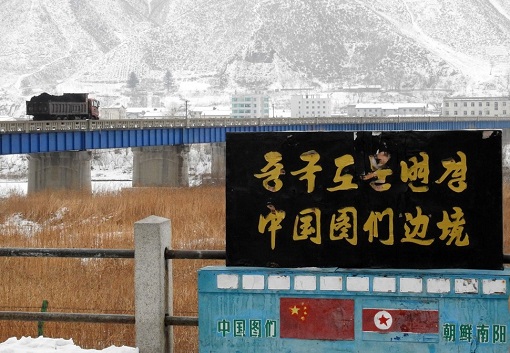
The young Trump administration, however, didn’t realize that China has played the same stunt before. Back in April 2016, China issued a similar ban on North Korean coal too. The Chinese exceeded a monthly U.N.-imposed cap and conveniently imported US$858 million worth of coal, despite a cap of 1-million metric tons or worth US$53.5 million for a month – whichever was lower.
This time prior to the ban, the Chinese had already ramped up the purchase – worth US$101 million in October alone. In November 2016, the U.N. imposed a cap on Dictator Kim Jong-un’s coal exports for 2017 at 7.5 million tons or US$400 million, whichever is lower. While the world was rejoicing that Mr. Kim’s closest buddy has stopped playing with him, China has pulled another stunt.
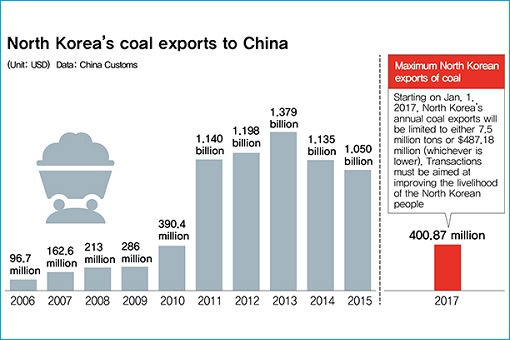
A week after the announcement of the ban, China’s foreign ministry conveniently revealed that imports of North Korea’s coal were (already) approaching the value limit for 2017. Was it a coincidence that China had accelerated imports of North Korean coal “before” telling all and sundry that Beijing would stop all coal imports from Pyongyang? If you believe it, then pigs can really fly.
Get real, if China was serious about stopping North Korean Kim Jong-un’s aggressive behaviour in the first place, they would have had ended his career once and for all – ages ago. Coal is North Korea’s single biggest export item and source of hard currency. About 85% of North Korea’s external trade is with China. Beijing provides up to 90% of North Korea’s energy supplies.
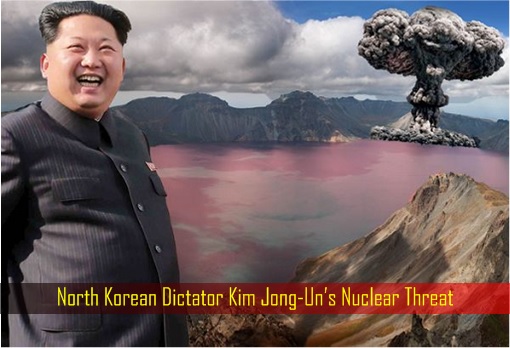
To terminate Kim Jong-un, China just needs to stop selling to North Korea, estimated to be about US$2.8 billion in 2016 – included US$450 million worth of fuel and commodity exports. In December 2016 alone, China shipped US$105 million worth of steel, US$75 million of soybean oil, US$49 million of gasoline and US$32 million of fertilizer, not to mention paper, rice and diesel.
Like it or not, China needs North Korea to play the “good cop, bad cop” drama. There’s no way that Beijing would play dumb while watching the U.S. launches airstrikes on Pyongyang from South Korea or Japan. How come a poor and isolated country such as North Korea could possess nuclear weapons and ballistic missiles but not any of the six wealthiest Gulf nations?
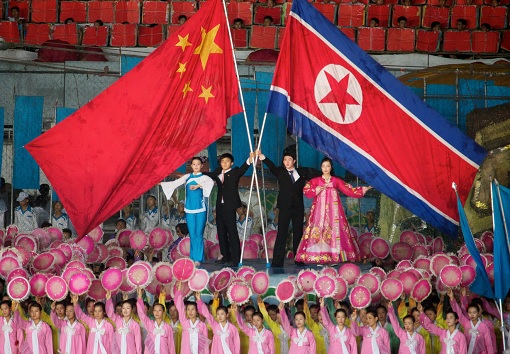
North Korea has been acting as China’s “buffer zone” even before the 1950-53 Korean War. In fact, China and Korea have enjoyed similar cultures for more than 2,000 years. Korea was then considered as “little China”. It was only after World War II, with the victory of Allied, that Korea was divided into North and South Korea. In the same breath, Japan’s 35-year rule of Korea also ended.
If the two Koreas were unified (after sending Kim Jong-un to his early retirement), it would create a formidable new power in the region and China would be facing “imperialism” led by the United States. To allow Washington starts and wins a second Korean War would only invite a stronger American military presence in China’s own backyard.
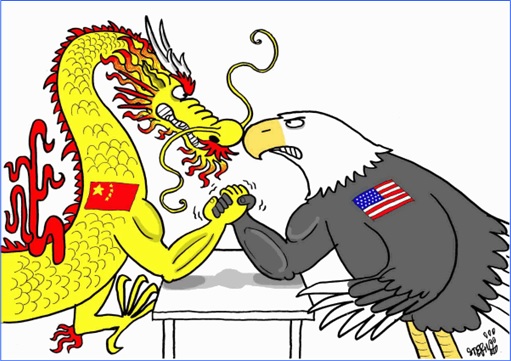
More importantly, a unified Korea would also mean China loses its entire territory and influence of “little China”. For now, at least China gets to control “half of little China (North Korea)”. History will not be kind and will tell how the supposedly mighty Middle Kingdom lost its “territory” twice – once to the Japanese and the second time to the Americans.
Even if the U.S. agrees to withdraw all its forces from the Korean peninsula if and when the Chinese help to engineer regime change in the North, there’s little reason to trust the Yankees. The U.S. would most likely move its forces from South Korea to Japan, still within a short striking distance of China. Nobody believes the U.S. will leave the region. 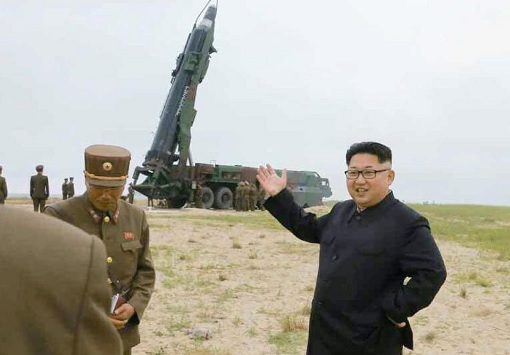
Even if China somehow is convinced that democracy is the best medicine for North Korea, there’s still a huge problem. The Chinese have seen what happened to Egypt, Iraq and Libya when democracy was forced into their throat. Any sudden collapse of the North Korea would in itself have destabilizing and unpredictable consequences, including a flood of unwanted refugees into China.
At a time when China is attempting to expand its influence and establish itself as the East Asian region’s dominant power, the mistrust between Beijing and Washington is simply too huge. Washington cannot expect Beijing to blindly agree to a military strike against North Korea when Tillerson arrogantly said China should be blocked from accessing the artificial islands it’s built.
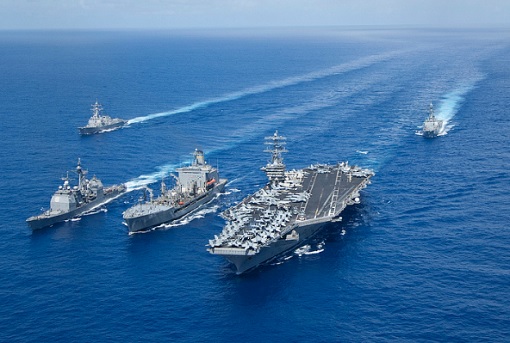
The deployment of U.S. Navy’s Carrier Strike Group 1 (CSG1) led by the Nimitz-class aircraft carrier USS Carl Vinson to the South China Sea on February 18 is seen as a direct challenge to China’s sovereignty claim over the South China Sea islands and their adjacent waters. Why should the Chinese obey the Americans after being lectured, intimidated and bullied?
At a briefing in Beijing with U.S. Secretary of State Rex Tillerson, Chinese Foreign Minister Wang Yi has reiterated Beijing’s view that a solution to North Korea is through talks, not military. This is the clearest warning to Trump administration that China will not sit still while watching with popcorn and Coke how America attacks North Korea.
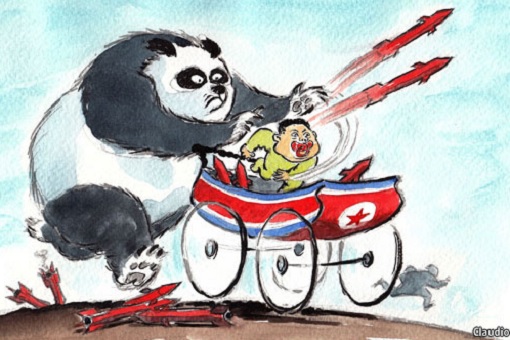
Even though Tillerson’s State Department says 20 years of diplomacy to curtail Pyongyang have failed and it’s time for a new approach, China wants the U.S. and North Korea to negotiate directly. Perhaps that’s precisely what Kim Jong-un is seeking – a negotiation with the U.S. to get what his friend Iran had gotten from former U.S. President Barack Obama.
In a nuclear deal between the U.S. and Iran, Tehran is supposed to delay developing any nuclear bomb for 15-years in exchange for lifting of its economic sanction, on top of recovering US$150 billion in frozen assets in foreign banks. Using the same tactic, perhaps Dictator Kim wanted the same thing – a lift of economic sanction in exchange for not testing nuclear weapon and ballistic missiles.
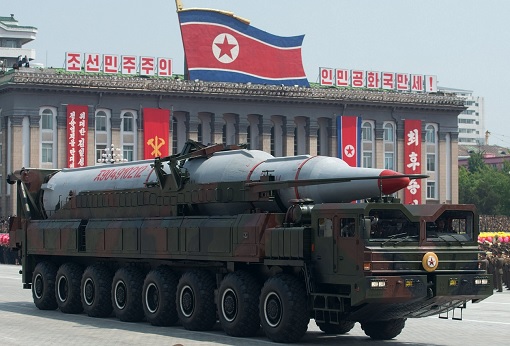
Still, the U.S. needs to go through the proper channel – the U.N. Security Council – for any military strike on North Korea. China (and perhaps Russia) will, of course, veto any resolution to bomb North Korea. And there’s always a risk of Kim Jong-un going bonkers and sends ballistic missiles to not only South Korea, Japan and the U.S. but also China, if the dictator is pushed to the wall.
Other Articles That May Interest You …
- Here’s How China Hurts U.S. – Boycotts All South Korean Products
- US Sent An Aircraft-Carrier Strike Team, And There’s Nothing China Can Do About It
- China Is Terrified – Trump Has The Power & Ability To Screw Its Economy
- “War Message” To Japan And US!! – China Sends 40 Fighter Jets & Bombers To Okinawa
- Tactical Error – THAAD Deployment Means US-South Korea VS China-Russia
- Tribunal: No Basis To China’s South China Sea Claim, But Who Dares To Enforce It?
- Why China Can “Take” Any Island In South China Sea … And Get Away
- Here’s Why The Fat Boy’s Hydrogen Bomb Was A Brilliant Strategy
- U.S. Provoking To Start A War With China? Bring It On!!

|
|
March 19th, 2017 by financetwitter
|


|

|

|

|

|

|




























Comments
Add your comment now.
Leave a Reply